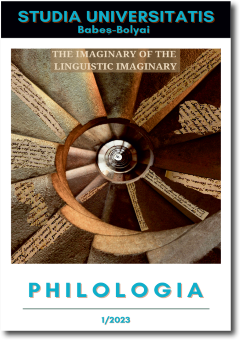“DARE TO THINK, DARE TO SPEAK, DARE TO ACT”: TRANSLATING POLITICAL SLOGANS IN MO YAN’S FROG FROM CHINESE INTO ROMANIAN, ITALIAN AND SPANISH
“DARE TO THINK, DARE TO SPEAK, DARE TO ACT”: TRANSLATING POLITICAL SLOGANS IN MO YAN’S FROG FROM CHINESE INTO ROMANIAN, ITALIAN AND SPANISH
Author(s): Mugur ZloteaSubject(s): Studies of Literature, Syntax, Lexis, Semantics, Translation Studies
Published by: Studia Universitatis Babes-Bolyai
Keywords: political slogan; ideology; translation; Cultural Revolution; Mo Yan;
Summary/Abstract: Dare to Think, Dare to Speak, Dare to Act - Translating Political Slogans in Mo Yan’s Frog from Chinese into Romanian, Italian and Spanish. Slogans are some of the most typical elements of Chinese politics and a significant part of the important decisions took by the Communist Party are made known to the masses using slogans, such as “It is right to rebel!”, “Destroy the four olds!”, or “The most serious problem is to teach the peasants”. Participation in political life after the founding of the People’s Republic, in 1949, could be done only by employing slogans or formulae derived from the elite political discourse. The major impact of politics upon people’s lives has transformed the slogan from a manifestation of political authority into a manipulation tool used by people to make their counterparts react in a desired way. Mo Yan’s novel Frog (Wa/Broaște/Rana/Le rane) shows to what extent slogans can influence ordinary people’s lives, where the use of real political slogans or even make-believe slogans – discourse modeled to resemble a political slogan –, are either attempts by the characters to make their voices heard and participate into decision making, or small acts of rebellion against the system. Considering the culture specific character of the slogans, the fact that they were created into a very particular socio-political context, the paper analyzes the translations of the slogans in Mo Yan’s novel into three Romance languages, in an attempt to identify not only the techniques and the choices made by the translators, but also the possibility, or impossibility, to recreate the slogan and conserve its original impact into the target culture.
Journal: Studia Universitatis Babes-Bolyai - Philologia
- Issue Year: 68/2023
- Issue No: 1
- Page Range: 299-316
- Page Count: 18
- Language: English

